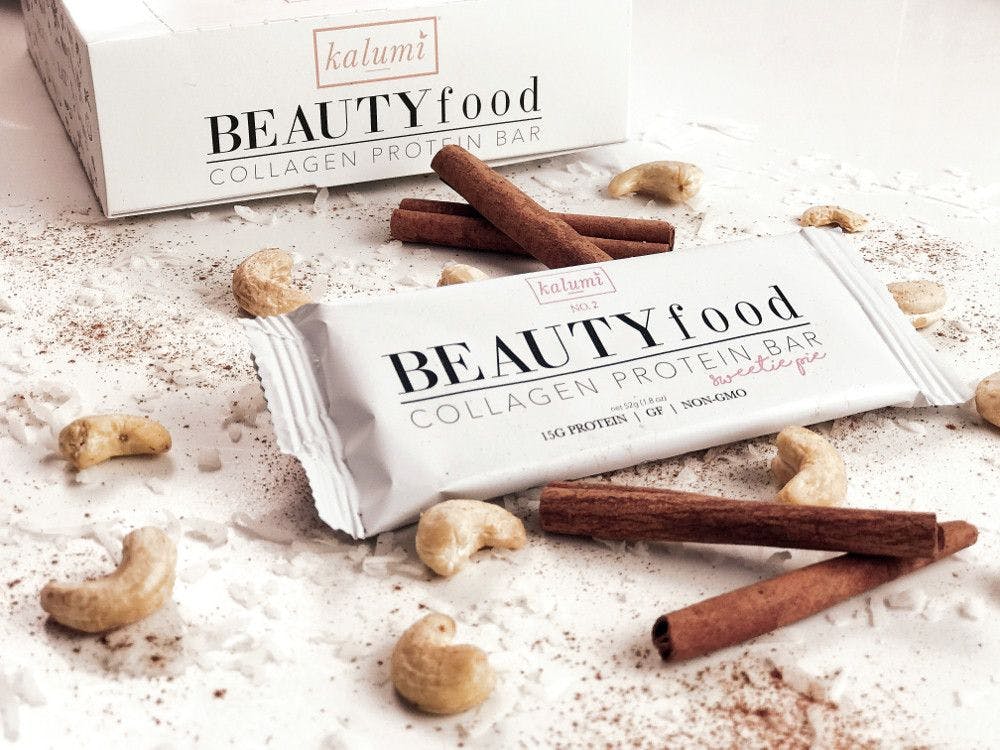Botanical superstars in 2019
Some are familiar leaders, while others are now gaining awareness.
Photo © AdobeStock.com/somegirl

On any list of top-selling botanical supplements, there are bound to be the usual suspects. Some ingredients have championed the category for years, and yet new (or at least less familiar) ingredients do enter the leaderboards from time to time.
What’s driving these botanical ingredients to sales success? From Ayurvedic ingredients to Western ones, we take a look at some of today’s botanical superstars and the stories behind their success.
Photo © AdobeStock.com/monticellllo
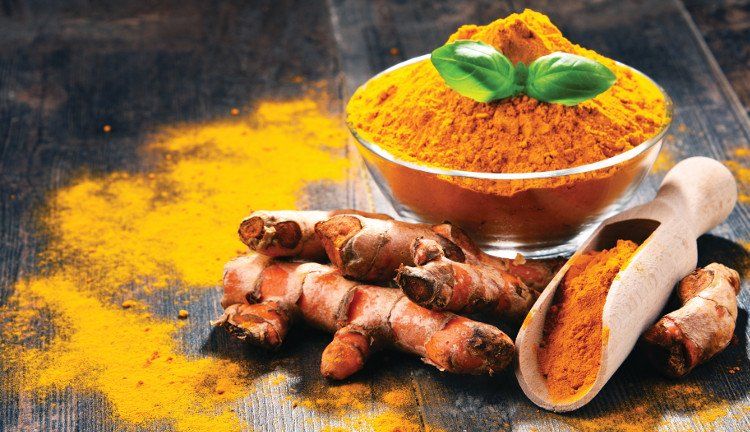
Turmeric
It should come as no surprise to learn that turmeric (Curcuma longa) is still a big earner in the dietary supplement space. Sales of the Ayurvedic root last year tallied over $50 million in the U.S. natural retail channel alone, according to recent SPINS estimates.1 In speaking with turmeric suppliers, it sounds like the ingredient’s ongoing success is a result of both increasingly positive press and research.
“Turmeric has been getting a lot of attention in the press, being dubbed a superfood by popular TV shows,” says Ramon Luna, marketing coordinator for turmeric supplier Ecuadorian Rainforest LLC (Clifton, NJ). “Having turmeric’s history and benefits explained in simple terms to the public has done wonders for the ingredient, and it’s a main reason why turmeric’s had such a stellar rise.”
Beyond mass communication of turmeric as a product worth buying, the scientific research on turmeric and its curcumin content continues at a strong pace. Research on curcumin for joint health in particular is increasing, and it’s likely part of why turmeric sales for joint health rose 32% in the conventional mainstream retail channel last year, says SPINS.1 But turmeric supplier Sabinsa Corp. (East Windsor, NJ) says research is expanding into other areas of human health too, including cardiovascular health, cancer, arthritis, and Alzheimer’s disease. Sabinsa’s own Curcumin C3 Complex remains the most researched turmeric ingredient brand to this day.
Turmeric is also starting to show up as an ingredient in the weight-loss category. Due to the lack of recent studies on turmeric for weight loss, it’s safe to attribute those sales to either the press or some very good product branding.
Expect alternative platforms like powder premixes and ready-to-drink beverages to continue gaining traction on traditional turmeric tablets and capsules.
Photo © Shutterstock.com
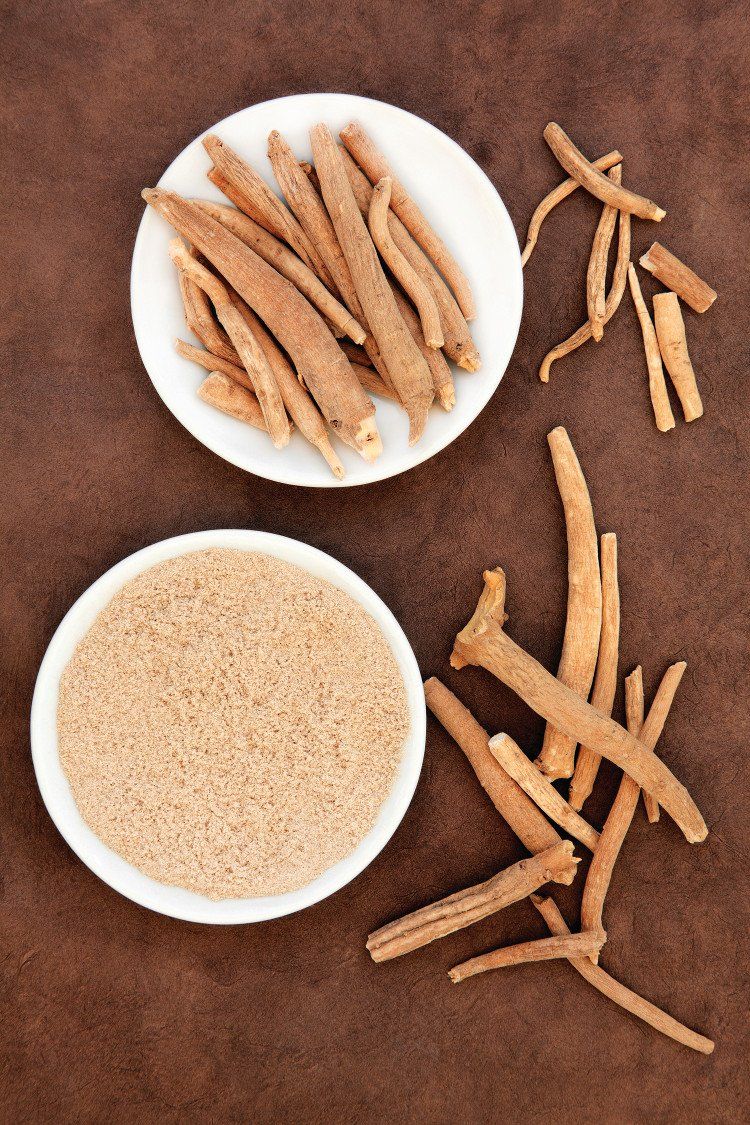
Ashwagandha
Ashwagandha (Withania somnifera) is popular in Ayurveda and most prized for its root. It’s similar to turmeric in that sense as well as for its continued success in the botanicals market.
In the latest Herb Market Report published by the American Botanical Council’s HerbalGram journal, ashwagandha sales grew 26% in the U.S. natural channel in 2017.2
While ashwagandha has many purported uses, ranging from general wellness to physical performance, market data suggests the brunt of ashwagandha sales are in mood and sleep products. In the U.S. specialty retail channel last year, ashwagandha sales jumped 25% for mood and 35% for sleep, says SPINS.1
Natreon Inc. (New Brunswick, NJ), supplier of Sensoril brand ashwagandha for global markets, says those sales boosts are backed by clinical research both on general ashwagandha and the company’s own brand. “The strong science supporting the use of Sensoril ashwagandha in the mood and sleep categories has been a key factor driving growth of this ingredient,” says Bruce Brown, president of Natreon. “Clinical evidence shows that Sensoril lowers cortisol levels, and cortisol is nature’s built-in alarm system. It’s your body’s main stress hormone that works to help manage your mood and sleep.”
When asked what a future market for ashwagandha could look like, Brown envisions ashwagandha crossing into trending markets such as CBD and kombucha. In terms of delivery platforms, the ingredient is making its way into beverages, gummies, chews, and foods. Further education should propel the root even further into all markets.
With growing popularity of ashwagandha, adulteration is unfortunately becoming a real issue. A January 2019 report3 from the Botanical Adulterants Prevention Program-a nonprofit educational program led by the American Botanical Council, the American Herbal Pharmacopoeia, and the University of Mississippi’s National Center for Natural Products Research-indicates that unscrupulous companies are selling bulk ashwagandha labeled as root but instead containing ashwagandha leaf, stem, and aerial parts. These cheaper materials contain the same withanolide compounds that are used today as laboratory indicators of ashwagandha root authenticity, but they don’t otherwise share the same phytochemical profile of the root.
With this in mind, last year Sabinsa introduced a new ashwagandha ingredient, called Shagandha, that is verified to meet U.S. Pharmacopoeia–National Formulary (USP-NF) monograph specifications, a fact confirmed by testing laboratory Alkemist Labs (Garden Grove, CA). Testing verified that Shagandha consistently meets monograph specifications for authenticity and is standardized to contain 2.5% withanolides. Sabinsa’s founder Dr. Muhammed Majeed said in a press release that companies must remain vigilant in verifying the identity of ashwagandha ingredients in order to sidestep possible adulteration in the supply chain.
Always ask for proper documentation when buying ashwagandha or any other dietary supplement ingredient.
Photo © iStockphoto.com/PicturePartners
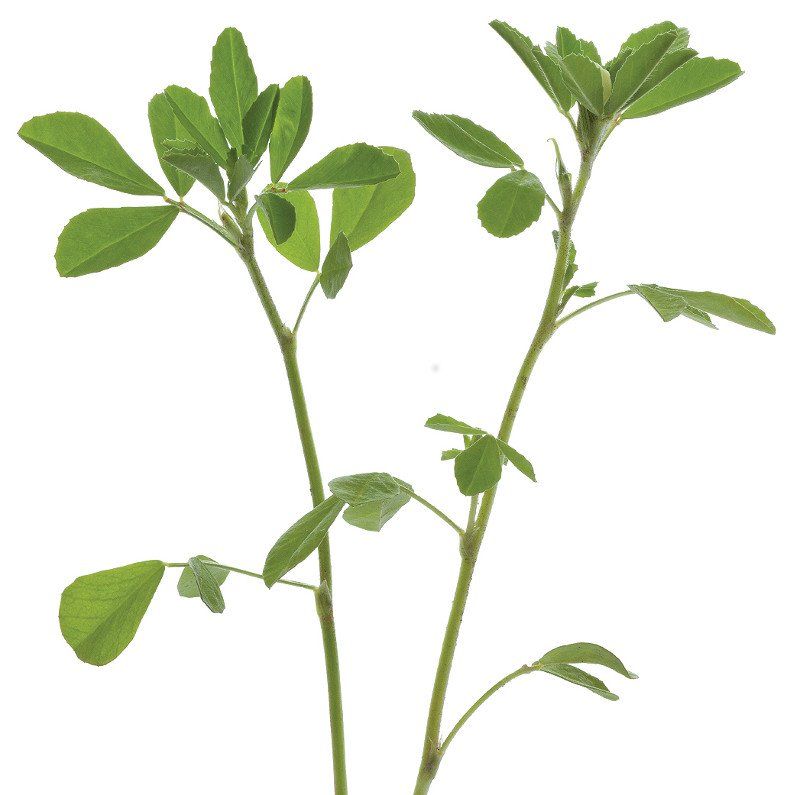
Fenugreek
Fenugreek (Trigonella foenum-graecum) is a longstanding leader in the botanical space. Sales of fenugreek seed extracts jumped 34% in 2017 in the U.S. mainstream market, according to HerbalGram.2
As a dietary supplement, the plant is sought more for its seeds than anything else. As with other leading botanicals, supporting research on fenugreek is accumulating alongside growing sales. Recently, a trial on men using Furosap fenugreek from Cepham Inc. (Somerset, NJ) linked fenugreek use to gains in lean body mass and total testosterone after three months of use.4 It’s just one of many studies published on fenugreek of late.
Fenugreek supplier Gencor (Irvine, CA) recently reported the results of a new unpublished study showing that one of its proprietary fenugreek extracts, Testofen, increased strength, aerobic endurance, and lean body mass in healthy, active men. The double-blind, randomized, eight-week clinical trial was conducted at RDC Global with 138 healthy, non-smoking male subjects, and examined changes in lean body mass, fat mass, upper and lower body muscular strength, and endurance. According to the company, results showed that the extract acted in a dose-response manner, with 600 mg per day of Testofen in conjunction with an effective exercise routine demonstrating superior positive effects when compared to placebo or 300 mg of Testofen per day.
Photo © Shutterstock.com/Ulada
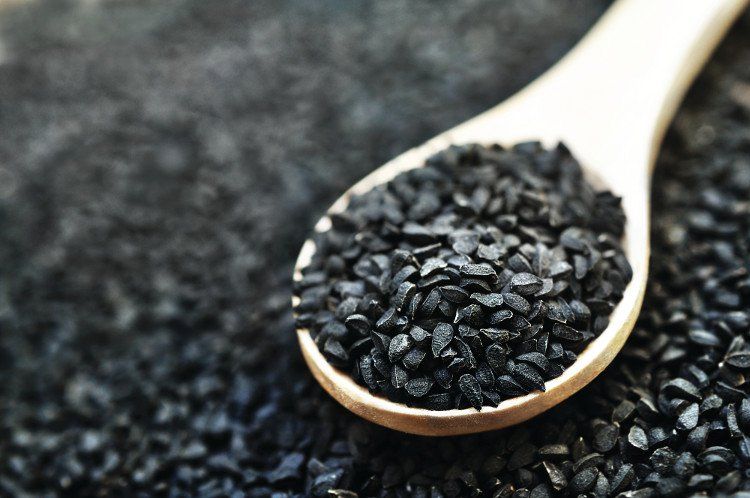
Black Seed
It’s not yet a household name in the U.S. botanical market, but black seed (Nigella sativa) is now in massive sales growth. According to HerbalGram, the ingredient’s sales growth percentage in 2017 was second only to hemp-based cannabidiol (CBD) in the U.S. natural channel2.
Despite its lack of familiarity in the states, black seed is reportedly popular in Ayurveda and other systems of traditional medicine. Scientific references are plentiful on the ingredient’s pressed oil.
“The most promising benefit, according to studies, is black seed oil’s superior ability to support a healthy inflammation response, especially when the oil is cold-pressed and standardized to the active constituent thymoquinone,” says Morris Zelkha, CEO of TriNutra Ltd. The company’s ThymoQuin black seed oil is available for bulk purchase through Barrington Nutritionals (Harrison, NY). It’s uniquely standardized for thymoquinone, a feat made possible by a selective breeding program yielding high-concentration thymoquinone varieties of the plant, the companies say.
Black seed oil suppliers are as excited by the ingredient’s newfound market appeal as they are in sharing the unique research taking place on this tiny seed. Zelkha says one ongoing clinical trial is exploring black seed oil for its potential to improve oxygen consumption in humans.
Last year, Sabinsa reported that its branded black seed extract, Nigellin BCS, was the best-performing black cumin seed extract in an asthma-related study recently published in Frontiers in Pharmacology5 comparing 10 different black seed extract preparations on their potential effects on asthma-related mediators of inflammation. According to the study researchers, Nigellin BCS was found to have the highest thymoquinone content of all the extracts included in the study, at 2.4%; the next closest extract had a 0.7% thymoquinone content, a 300% difference, says Sabinsa.
Black seed oil is sometimes referred to as black cumin, and this alternative name can confuse consumers. After all, black seed oil is entirely unrelated to the cumin spice. Some industry experts are encouraging interested manufacturers to avoid labeling black seed oil products by this alternative name.
Photo © AdobeStock.com/romankrykh
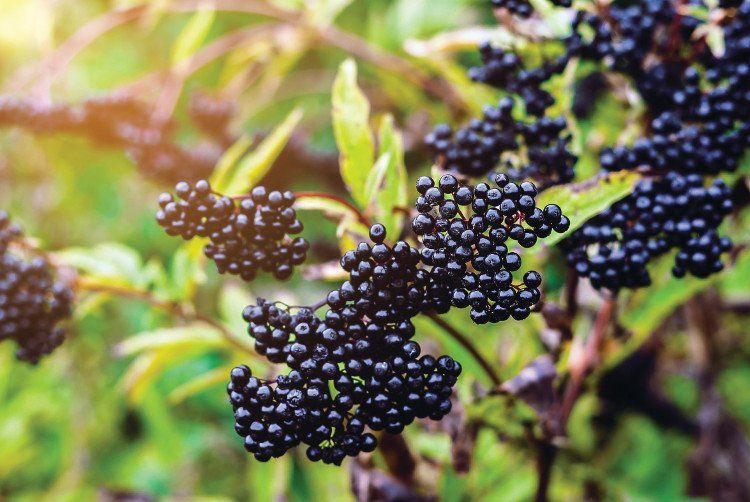
Western Botanicals
While Ayurvedic plants tend to stand out in lists of today’s top-selling botanicals, there are contenders being cultivated out west. Elderberry (Sambucus nigra) and wheatgrass (Triticum aestivum) both boasted sales growth of at least 30% in 2017 in the U.S. mainstream channel, HerbalGram reports.2
Elderberry is particularly rich in vitamin C, quercetin, and antioxidants. Products can be made with both the elderberry flower and fruit-some combine both-but the fruit and its juice allow for a great range of applications. Traditionally, elderberry is associated with potential cold and flu defense. Elderberry suppliers hypothesize that elderberry’s growing sales are influenced by growing concerns surrounding flu season and strengthening flu viruses.
Wheatgrass is popularly farmed in the United States, and its dietary supplement success isn’t necessarily happening in pill form. Brien Quirk, director of R&D at Draco Natural Products Inc. (San Jose, CA), says his company has seen a growing trend in formulating supplements into a drink-based format in which greens like wheatgrass or barley grass are used as the base “since they have antioxidant, nutritive, and detoxification benefits.”
Since wheatgrass is easily cultivated on a mass scale, adulteration isn’t a big issue here. Heavy metal contamination from pesticides may be a concern worth testing for, though.
References:
- SPINS data based on U.S. sales during the 12-month period ending November 4, 2018.
- Smith T et al. “Herbal supplement sales in US increased 8.5% in 2017, topping $8 billion.” HerbalGram. Issue 119 (Fall 2018): 62-71
- Singh VK et al. “Adulteration of ashwagandha (Withania somnifera) roots, and extracts.” Botanical Adulterants Prevention Program’s Botanical Adulterants Bulletin. Accessed online at http://cms.herbalgram.org/BAP/index.html
- R Guo et al. “Furosap, a novel fenugreek seed extract, improves lean body mass and serum testosterone in a randomized, placebo-controlled, double-blind clinical investigation.” Functional Foods in Health and Disease, vol. 8, no. 11 (2018): 519-530
- Koshak AE et al. “Comparative immunomodulatory activity of Nigella sativa L. preparations on proinflammatory mediators: a focus on asthma.” Frontiers in Pharmacology, vol. 9 (2018)


.png&w=3840&q=75)

.png&w=3840&q=75)



.png&w=3840&q=75)



.png&w=3840&q=75)

